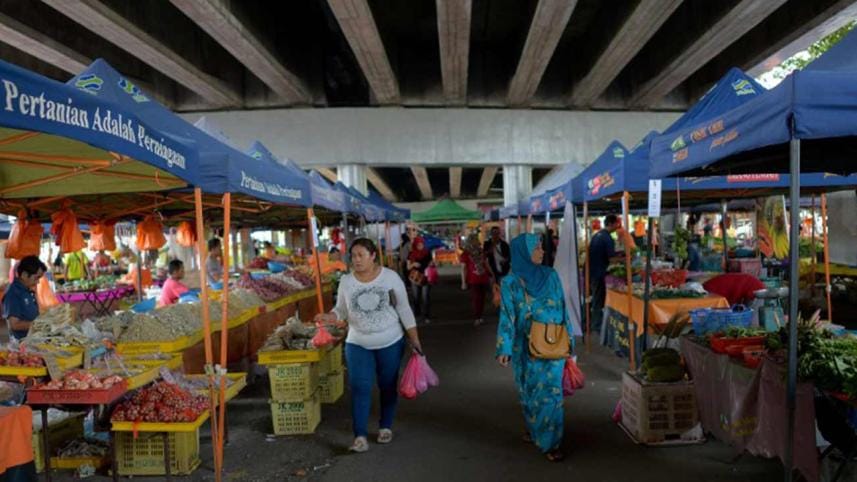Malaysia’s dress code uproar 'stems from intolerance'

Malaysia's recent incidents of strict enforcement of dress codes at government buildings is due to the rise of intolerant attitudes among certain "holier-than-thou" Muslims imposing their Islamic values on Malaysians of other faiths, said former high-ranking civil servants and lawyers.
Speaking to The Malaysian Insider, they called on the government to intervene and stop what they see as a trend of moral policing, following an uproar over the incidents.
They were referring to a string of cases this year involving women and men deemed to be indecently dressed and denied entry into some government buildings.
Human rights activist and lawyer Ambiga Sreenevasan said government departments were not places of worship where austere dress codes would be imposed.
"They have to realise that these government offices are public premises to serve the public and not (places) to tell them how to dress," she told the news portal.
"They have gone overboard in seeking to enforce a dress code.
"Who gave them the right?"
On June 8, a middle-aged woman, Suzanne G.L. Tan, was denied entry into a Road Transport Department office in Selangor for wearing a skirt that fell just above her knees.
She was allowed to enter only after putting on a sarong provided by a security guard, who said she was following orders.
In another incident on June 16, a young woman was forced to wear a towel to cover her shorts before entering the Sungai Buloh public hospital in Selangor.
On May 7, businessman Wilson Ng claimed he was denied entry to the Kuala Lumpur International Airport's lost-and-found baggage office for wearing knee-length pink shorts and sandals.
Former diplomat Noor Farida Ariffin of G25 - a group of prominent Malays - said the incidents reflected a growing religious conservatism on the part of many Malay Muslims.
"It shows the intolerant attitude of these holier-than-thou Muslims and their willingness to impose their Islamic values on fellow Malaysians of other faiths.
"It also shows their lack of respect for other races and other cultures."
Meanwhile, Ramon Navaratnam, the former secretary-general of the Ministry of Transport, summed up the issue as a case of "little Napoleons trying to be more pious than the Pope".
"It's not like they were in their bikini or underpants, so what's the issue, why are they so affected by the sight of knees?" said the chairman of the Asian Strategy and Leadership Institute's Centre for Public Policy Studies.
He said he had not encountered such issues during his time in government service, when freedom of choice was emphasised.
Noor Farida called on the government to direct its agencies to stop issuing dress codes, given there was no legal basis for them.
The debate on the issue came even as Perak Islamic legal expert Harussani Zakaria on Saturday called on non-Muslims to dress more "appropriately" in public places as a show of "respect" to Muslims.
This, he said, was because non-Muslims had to be mindful of Muslims who will sin upon seeing people who did not cover their "aurat", referring to the parts of the body required to be clothed in Islam.
"It is not wrong for them to dress how they like, but they must be considerate because when we bump into them at public places and see this, it is considered 'haram' (forbidden) for us (Muslims)," he told the Malay Mail Online.
Meanwhile, Malaysian Chinese Association vice-president Chew Mei Fun yesterday said Malaysians should not be compelled to adhere to standards set by "ultra-conservatives".
Chew said the incidents threatened to open new rifts in inter-ethnic and religious relations in Malaysia as the rights of the victims have been violated, The Star reported.
"The grievance is due to long-term accumulation of a lack of understanding between different ethnic groups," she said in a speech at an inter-racial and inter-religious seminar.
She pointed out that although the authorities involved had issued apologies, the incidents have tarnished the reputation of the public service.
"People's feelings have already been hurt and the public has drawn its own (impression) of the incident," she said.
As a remedy, she called on more public dialogues to strengthen inter-ethnic understanding and national unity.
ANN/The Straits Times
 For all latest news, follow The Daily Star's Google News channel.
For all latest news, follow The Daily Star's Google News channel.
Comments